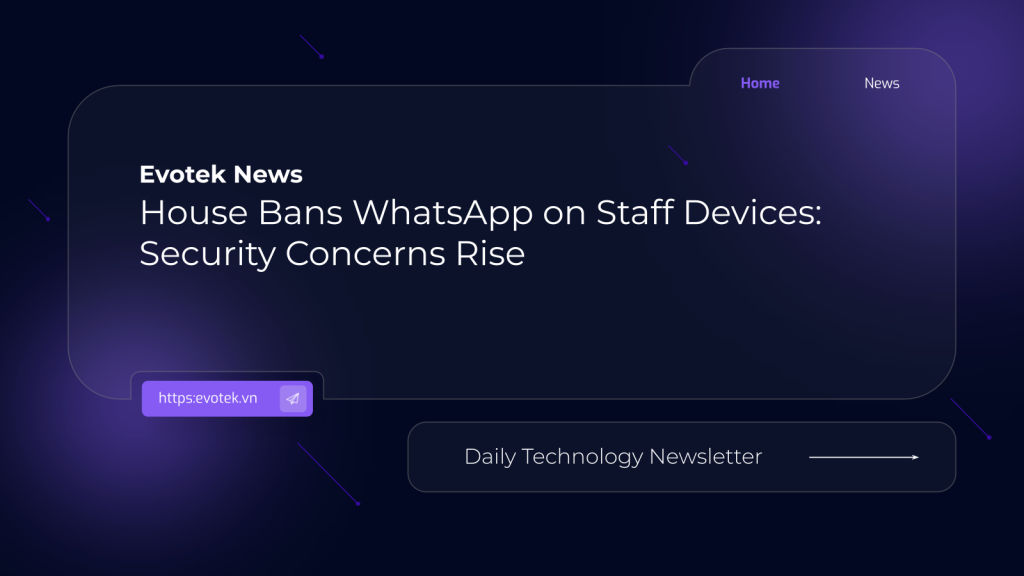In a move highlighting growing cybersecurity concerns, the U.S. House of Representatives has prohibited the use of WhatsApp on government-issued devices for congressional staffers. The directive, issued by the House’s chief administrative officer (CAO), cites significant vulnerabilities regarding the popular messaging app’s data protection practices.
Data Security at the Forefront
The ban stems from the Office of Cybersecurity’s assessment that WhatsApp poses a “high-risk” due to its perceived lack of transparency in safeguarding user data. Key concerns include the absence of stored data encryption and potential security flaws inherent in its architecture. This decision aligns with Congress’s increasing scrutiny of AI programs and other technologies deemed potentially risky.
According to an email obtained by Axios, the CAO explicitly stated: “House staff are NOT allowed to download or keep the WhatsApp application on any House device, including any mobile, desktop, or web browser versions of its products.” Staffers with the app installed on their House-managed devices are being instructed to remove it.
WhatsApp Responds
Andy Stone, a spokesperson for Meta, WhatsApp’s parent company, strongly refuted the House CAO’s characterization. “We disagree with the House Chief Administrative Officer’s characterization in the strongest possible terms,” Stone said in a statement to Axios.
He further emphasized WhatsApp’s security features, stating, “Messages on WhatsApp are end-to-end encrypted by default, meaning only the recipients and not even WhatsApp can see them. This is a higher level of security than most of the apps on the CAO’s approved list that do not offer that protection.” Stone also expressed hope that House members will eventually be able to use WhatsApp officially, similar to their Senate counterparts.
Approved Alternatives
The CAO has identified several alternative messaging platforms that meet the House’s security standards. These include Microsoft Teams, Wickr, Signal, iMessage, and FaceTime. Staffers are encouraged to use these approved apps for official communications.
Additionally, the CAO’s office cautioned staffers to remain vigilant against potential phishing scams and suspicious text messages from unknown sources, underscoring the importance of cybersecurity awareness.
What This Means for Congressional Communication
This ban marks a significant shift in how House staffers communicate and collaborate. The decision underscores the importance of data security and the ongoing efforts to protect sensitive information within the U.S. government. The House’s action reflects a proactive approach to mitigating potential cybersecurity threats in an increasingly digital landscape.
Secure Messaging Alternatives: Microsoft Teams, Wickr, Signal, iMessage, FaceTime
Related News: Congress Tightens AI Program Restrictions, Cybersecurity Concerns Mount

 日本語
日本語 한국어
한국어 Tiếng Việt
Tiếng Việt 简体中文
简体中文